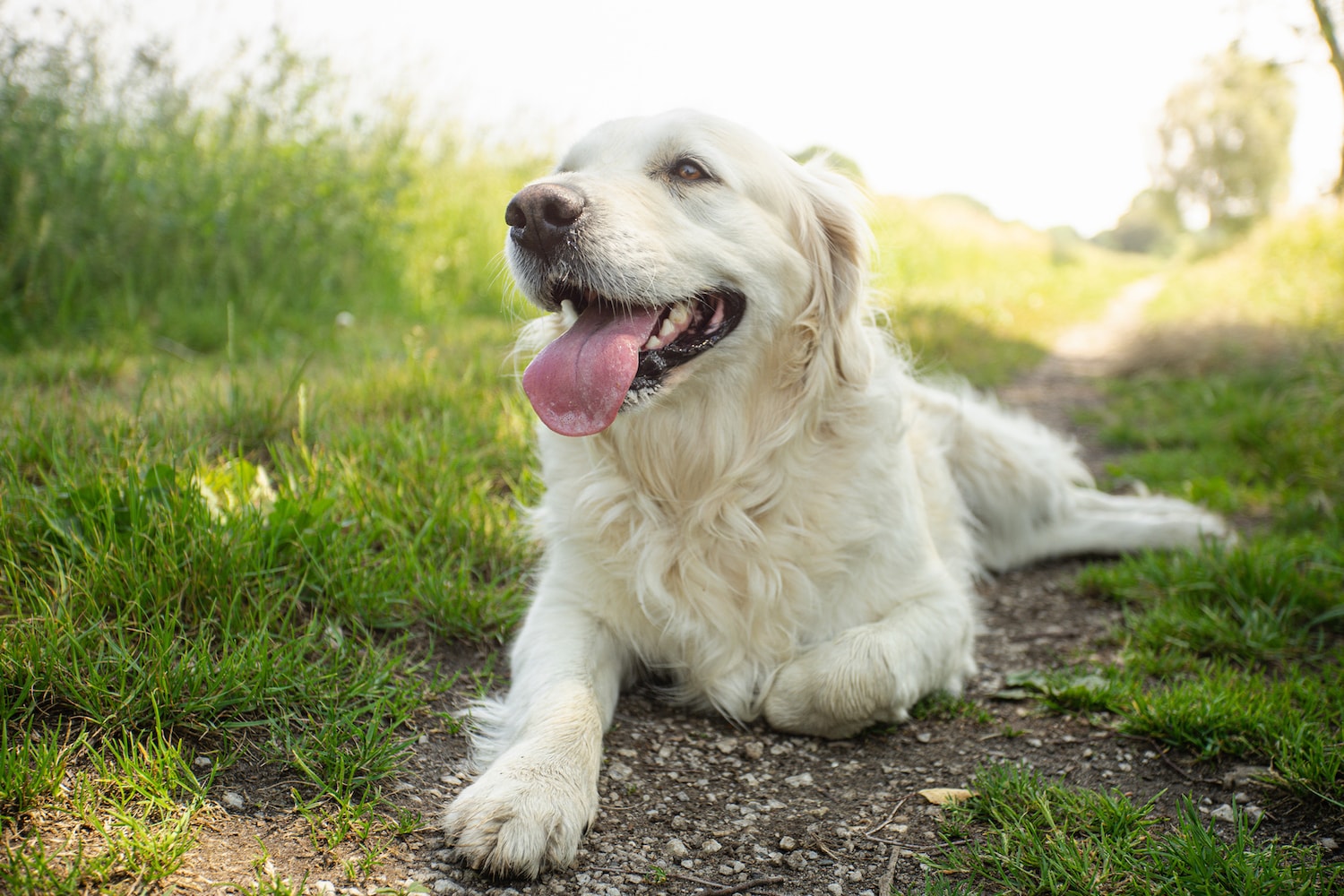All dogs pant, especially when it’s hot outside. But if your dog is panting a lot in conditions when they are relaxed and at a comfortable temperature, it may be time to seek guidance from a veterinarian, who can help you identify the underlying cause of this behavior. Here’s everything you need to know about dog panting.
Why dogs pant
Dogs pant for a variety of reasons, but most commonly because they are hot. Unlike people, dogs can’t sweat through their skin. Instead, they pant to release heat and cool down. If your dog was just running and playing, or if it’s a hot day, it’s normal to see them pant, explains Dr. Lori Scarlett, a veterinarian and the owner of Four Lakes Veterinary Clinic in Madison, Wisconsin. But some dogs, like those that are overweight or brachycephalic breeds, such as pugs and Boston terriers, will pant more than others.
If your dog is panting excessively, however, it could be a sign that something is wrong. “If your dog is panting in an air-conditioned house, while resting, and hasn’t really done anything to get overheated or excited, then that panting isn’t normal,” says Scarlett.
Causes of excessive panting
There are many reasons why your dog may be panting excessively. In order to determine the cause, pay close attention to your dog’s behavior and activities when the panting occurs.
Heatstroke and dehydration are some of the most common causes of excessive dog panting. If your dog becomes overheated, their saliva will become thick and sticky, and their tongue may turn bright red. They may also be weak, have difficulty walking and experience symptoms of vomiting and diarrhea. Signs of dehydration include dry or tacky-feeling gums, a very dry nose, sunken eyes and lethargy, Scarlett explains.
The best way to prevent your dog from getting overheated is to monitor the amount of time they spend outdoors during extreme weather. “If you must be outside, be sure to take frequent breaks, rest in the shade and have clean, cool water available for your dog,” says Scarlett. On a really hot day, you can help your dog maintain a comfortable body temperature by wetting them with cool, but not ice cold, water. Go over these tips with your dog walker so your pup will stay safe and healthy, even under someone else’s watch.
Stress or anything that causes anxiety in your dog can also cause excessive panting. Loud noises, such as fireworks and thunderstorms, or significant life changes, such as the addition of a new pet or baby into the family, can bring on anxiety-related panting. Avoid the stressor, if possible, explains Dr. Marie Haynes, a veterinarian and the creator of the website Ask A Vet Question. For instance, if loud noises cause your dog to panic, move them to a soundproof area when there’s a thunderstorm. You may also want to consult with a dog behaviorist, who can train your dog to cope with certain situations.
For more tips on handling anxiety caused by noise, check out 6 Ways to Help Ease Your Dog’s Fear of Loud Noises.
Panting can be brought on by any type of stress or over-excitement, but it can also be a result of an illness or chronic condition, such as Cushing’s Disease, heart disease or a pulmonary disease. Your dog’s excessive panting may be caused by pain, discomfort or a fever related to an illness. “If you are noticing that your dog is panting constantly and can’t seem to get relief, then there could be a chronic health issue in play,” says Haynes.
When to call your vet
If your dog is severely distressed, coughing or struggling to breathe, take them to see the veterinarian right away, as these can all be signs of a serious problem, as is the case if your dog is displaying any signs of dehydration or heatstroke. You may also want to consult with a veterinarian any time your dog is panting excessively for no apparent reason. Your vet can perform tests on your dog to determine the underlying cause of this behavior and prescribe medications, such as Xanax or Prozac, if necessary.


